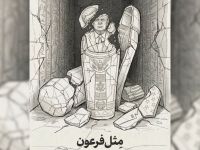(AFP, TEHRAN) – Iran's Karafarinan credit institution is set to become in four months time the first private bank in the country since the Islamic revolution of 1979, its director Parviz Aghili told AFP Sunday.
The institution, which is not the only one with the same goal, hopes "finally" to take advantage of a 1993 law allowing private banks in the country.
The law was confirmed at the beginning of this year by the former conservative parliament, and the opening of the banking sector to private enterprise is included in the current five-year plan, which runs to the year 2005.
“We have been able to operate as a credit institution since November 29 1999. We opened our offices in March, with capital of 17 million dollars,” said Aghili, 54, who has been working feverishly on "his" project for seven years.
"We are on the starting blocks. In four months, we hope to become the first private Iranian bank of the Islamic republic," he said.
"We are awaiting two decisions from the central bank: authorization to be a real bank issuing checks, whereas now we work only with payment orders, and also to be able to operate in foreign currencies," he added.
Two other private banking institutions have recently opened in Iran: the Saman-e-Eqtessad, which also hopes to get approval to operate as a bank, and the Tosse-e Sanat-e-Sakhteman, which specializes in construction.
Karafiranan has 500 clients, many of them private companies, and plans to open a branch in Tehran and another in Isfahan.
It is already offering interest rates for savers two percent above the rate from the national banks, such as 20.5 instead of 18.5 percent over five years, and 10 compared with eight percent over six months, explained Aghili.
He went on to put the banking privatization into a more global and political context.
“All the management and staff are currently Iranians living in the country,” he said, adding, "we hope to attract Iranian bankers working abroad, to repatriate them."
"Iran, like every country in the world, needs a private sector, in banking just as in other areas. It is more efficient. It allows for people's initiative. We have to find jobs for millions of young people," he said.
"If Iran needs the west, the west needs Iran, in particular to counter Russian domination in central Asia," he added.
There is also no question for the moment of foreign banks opening branches in Iran.
However, foreign banks, in particular British, French and German ones, are well represented in Iran for loans, pre-financing, or financial advice.
"It is the right time to open private Iranian banks. The surge in the price of oil has added extra reserves of at least 10 billion dollars to the central bank," according to a European banking expert currently in Iran.
"Iran's budget plans are based on the price of a barrel being between 16.5 and 18.7 dollars," he said. Crude prices climbed briefly to over 30 dollars a barrel for benchmark Brent crude in London Friday.
"An extra dollar per barrel represents a billion extra dollars for Iran," which is replenishing its treasury but "hesitating to take strategic decisions," the expert said.
"The existence of private banks could be of help in this," he added.
The privatization of the banks as set out in the laws adopted by parliament does not include the five current national retail banks, Mellat, Melli, Tejarat, Saderat and Sepah.
© 2000 Mena Report (www.menareport.com)







